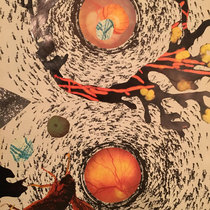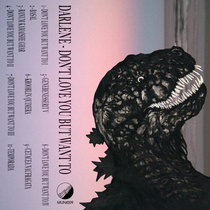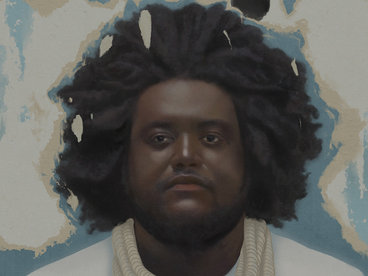
A New Standard of Leadership
from Child-Buyers: An Introduction to Comprachicos by Choir Korneli Leviyey
lyrics
What are we to do with all of this information regarding the supposed mechanical workings of trauma and emotional intelligence? Not only should it allow us a better grasp on why and how our sphere has become so ill and, moreover, help to point us in the direction of a remedy; it should also help us with establishing a new standard of leadership and stability among an immature population (literally ‘unmatured’).
Our materialistic population has heretofore decided and adjudged its leaders based on a set of flimsy and superficial criteria having less to do with the quality of character, understanding and inner development of a given individual than with the degree to which one can appeal to our animalistic programs. As so, the fate of our humanity rides on a game of dress-up, in which each individual seeks to impress and intimidate one another with facile flourishes which, by some sorry means, have come to be associated with strength and authority. Though even if our instincts and associations have their basis in legitimate evolutionary mechanisms which once allowed us to survive a more tribal environment, I like to think that we are now more advanced than to base our assessment of strength on the volume at which one can roar or the colorfulness of a headdress, and I believe we must take to rewriting our criteria sooner rather than later, instating real, sensible principles into our failing system so as to reintroduce real guidance into the mix of what we call leadership. Then it is time we stop treating leadership as a career or as a personality trait, understanding it as a responsibility which necessitates a thoroughgoing commitment unto ourselves as well as others—and a commitment which also takes more than the immediate present into account, surely as the choices that we make today will still be felt many years in the future.
How, then, would I define a ‘leader’, or someone suited to lead the population through the hardships of life—abstract as well as physical—toward a healthier standard of being…? To sit here and list off a set of character traits seems rather futile, since not only are many of our observable traits capable of being faked, even over long stretches of time, but even the most agreeable acts are unstable when not established upon a substrate of mindfulness and intent. Consider our tendency, as humans, to associate a smiling and friendly demeanor with goodness of character, innocently neglecting to consider how it benefits the friendly individual to behave as so and that it may speak as much or more to selfish, survivalistic purposes than to kindness and lovingness carried out mindfully. Most smiles will turn to scowls at the first itch of inconvenience. Therefore we must be able to properly identify virtue which is maintained not out of ignorance but out of courage; not in denial of negativity and inconvenience but in spite of them. For that to be possible, the spiritual standards of our society must develop to where they are beyond being faked, and for development as such to be possible, we must take great care in defining (and upholding) our terms.
As so, our goal is not simply to replace the leaders, meanwhile leaving these broken systems and processes intact and merely hoping that the good ones can continue to win out in the polls over time. Our goal is not even to restructure the physical systems in place, but rather to transform the base desires and archetypes of the population which determine such systems and outcomes. Our goal is to establish an incorruptible model of power and leadership which can not be achieved by dishonest means (not like our current models which encourage billions of individuals to stand atop the skulls of their brothers to get what they want). Yea, if our definitions of valued concepts can be achieved by underhanded means we must carefully examine what that says of our concepts and their definitions and the influence that these will have on a desperate population. After all, we can not buy or swindle our way to health, for which one must always put in an honest and focused effort. Then let us aspire toward a type of ‘leadership’ that cannot be achieved by vile means, inspiring only virtuous acts and traits in the population, e.g., understanding, tenacity and focus. Let us work to delineate a strength which cannot be feigned; a level of empathy and insight which cannot be substituted for with a smile and a teleprompter.
A child which is abused and made to feel weak will naturally come to desire strength and power and thence they will seek out what society has to say about powerful men and women, and they will carry their traumas into office where it shall reign over the population and imprint itself on every subsequent generation. Many whom we now call leaders are naught more than survivalists-turned-opportunists; they are children who are willing to cry and lie and exert force to get what they want, compensating for expectational devastation via unending overcorrection, and they have overstayed their welcome within our loftiest offices. Though let us not overlook the tragedy of this outcome, knowing that it often relates to traumatization and deep-seated insecurity rather than to some mere entitlement—although that cannot be used to excuse the repeated occurrence of abuse.
And once you consider just what this power and authority represents to such individuals, it makes perfect sense that they would seek to do all within their power to maintain that position. Many would attribute these matters to greed, but where greed, like all tendencies, is informed by some underlying need within our psychology, I would argue against seeing greed as a primary motivating factor in any scenario, being it but a representation of insecurity which has been transferred over to the physical sphere—over which we, as physical beings, claim a greater degree of control. And once you learn to understand power, money and influence as being all just physical representations of assurance, then you see that it is not gold which the greedy are stockpiling; it is not their material assets which they are ultimately defending.
Then perhaps it is by no coincidence that there exists such a large cognitive and associational gap between the leaders and the masses within the minds of the population, as so many are dependent on that gap for their security. And perhaps it is not so unintentional that the majority of people alive today are only a couple of missed paychecks away from poverty and deprivation. And perhaps it is by no coincidence that we have become so fixated on defending our most fundamental allowance as living beings that we have no time left to consider what we can or should become in our limited time alive. And perhaps all the crises that could very well be solved by our designated leaders are not being addressed for the fact that, by keeping the whole world on its toes and forced to fight for each moment, no one has the time or luxury to dream, to plot, to be. As a conclusion it isn’t particularly profound, but it nonetheless merits our focused attention as we seek to resolve the crises at hand—neither via bandaid solutions, nor by exiling the offending parties, but by addressing the psychological and environmental factors which are actively nourishing the cancers in our midst.
I would make the argument that all of us are inherently after health and security. The problem arises when no one can grasp how that should truly look. And sure, it may be tempting, as we scan the modern landscape, to believe that humanity is inherently corrupt, incapable of goodness, but let us first establish a viable endpoint before deciding whether we are or aren’t capable of reaching that aim. Let us first get our semantic associations in order, and by that I not only mean to seek after establishing a certain universal consistency—to the extent that that is advisable (a philosophical debate for another time)—but to consider how our associations can be brought further into alignment with our inherent expectations as a species so as to eliminate or ameliorate the reality of ubiquitous traumatization.
Leadership necessitates accurate expectational maps, and such is only possible of those who have properly identified and worked to resolve their personal trauma. Where trauma lingers, our understanding will not exist in alignment with reality, and we cannot be relied upon to lead our species through a context whereof we lack fullest understanding. Victory over our nature is not something which comes by way of happenstance, coming only via a deliberate and courageous confrontation with our weaknesses. Though the effort is very well worth it; and not only will this approach result in us gaining a more accurate understanding of the problems that plague our humanity and how to tackle them, but we will not be looking to the population of living, sentient beings as mere tools with which to pacify our inner conflicts.
Since our ideal represents a marked change from the current standard, we must be pragmatic in our approach so as to ensure a successful operation. Therefore, while we, as a collective, strive toward health, let us not create an impossible standard which leaves us leaderless and longing. We may one day be capable of producing individuals who are truly clear of all trauma and discrepancy, though that may not be possible within the immediate future, and in the meantime we must look to those whose motives and efforts are in order, so to speak; those who strive for health with all of themselves—outspokenly so. That is not to underestimate the importance of actually overcoming our individual traumas—through which each and every one of our interactions are filtered—though I do think that it counts for something to be keenly aware of our traumas and how they influence our thoughts and actions. Even without having fully overcome all weaknesses within themselves, those who are aware of and honest about the nature of their weaknesses (and their relationship thereto) are still far better equipped than the self-ignorant population when it comes to counteracting them, whereas the latter will simply seek to ignore and hide all such faults, resulting in endless catastrophes for which they refuse all responsibility and setting a precedent for helplessness on the grand scale.
Though my writing contains many simplifications, the reality is in many ways as basic as I have depicted it: our abusers do as they do because we allow it of them; because we’ve asked it of them via our perpetuation of unhealthy archetypal associations. They’re in our house because we’ve let them in. In a time when they were but weak and vulnerable children searching for a way to feel strong, to feel successful, to feel necessary in this world, they were fed a hollow image of what it means to be powerful, valid, and they have grown fat off of these ill-born associations. They were fed a lie and that lie has grown so large as to devour us all.
We will surmount this beast not through violence and fires in the night but by cutting it off from its symbolic motivations, for as long as these same associations and conditions are in place we will be given the self-same outcome again and again in the form of a regenerative hydra.
If only we would stop feeding into these hollow concepts which, to us, represent power and authority, and seek to subvert and replace them with a more healthy standard, then these broken individuals who depend upon such associations for their authority will lose all ability to assert themselves over us, as the public will no longer regard them by the image which they so wish to project. Yea, if we can only manage to set straight our perversive archetypes and definitions we will eradicate illness concomitantly while doing away with all who derive their strength from those perversions, since by eradicating all power that is associated with the aims and actions of our would-be leaders, we remove all incentive for anyone to authorize them, let alone exalt and idealize them. Then these individuals, desperate though they may be, will not be able to say otherwise when society refuses to reflect their primal needs back at them and they will move on to another means of gaining favor and significance (and with any luck—or rather, with careful maneuvering on our part—it will be a more constructive means).
Consider it through the lens of fashion, and let us say that a certain style of clothing is en vogue: all individuals who seek after influence will gravitate by instinct toward the popular opinion on what is and isn’t a marker of influence and the current fashion will be used to meet their unmet psychological needs. However, once public associations shift and that same clothing falls out of style, the wearer will no longer be valued for their opinions when they no longer comply with the standard, and this will force them to adapt once again to changes in trends, since ultimately it is not the clothing in itself that they are after but what it brings for them on the psychosocial level—functioning as a makeshift to fill the void existing between reality and their expectational maps. This analogy strikes at the heart of the Comprachicos collective and truly defines our approach, since we do not seek to overthrow or otherwise convince the world and its leaders of our views, but to shift the underlying associations upon which fashion—or rather, desire—is established. Why remove the crown of the tyrant by force when they shall surrender it willingly once it has been made worthless (by failing to fulfill their neurotic needs)?
May this simplified breakdown provide my audience with a basic grasp of the tremendous power inherent in semantics and archetypal associations by showing how, through shifting definitions and other psycho-emotional associations on the abstract level, one can shift the very foundations of the world, surely as the maps which we have constructed by our means are built not upon bedrock and bitumen but upon purest knowledge or its absence. If only our society was not so dissociated from the abstract dimensions of life then it would have figured all of this out and seen it implemented long ago, realizing semantics to be more powerful than any arsenal on offer. Yea, the pen which codifies our language, writes our encyclopedias and enforces our associations holds more power than all the armies of the world.
My readers may not agree with every aspect of my philosophical position, and that is perfectly alright, since it is not essential to taking part in this collective, although I would hope that we can all agree upon the notion that the misrepresentation of reality occurs not without casualties. This is especially important to note within the context of our attempts, as comprachicos, to steer the public away from the unhealthy and neurotic associations which have developed over time, since, despite the fact that we may have to employ some creative means to achieve these ends, we have not been given creative license to reinvent these associations in line with our own whims and wills. Yea, health is health, and sickness, sickness; and these things we can not override with our tastes. Analogically speaking, we are not looking to develop a new type of fuel so much as we are hoping to tap into an extant reservoir which has existed for all of time—buried below the ground and overlooked by all. Such is the sacred; the natural.
Our materialistic population has heretofore decided and adjudged its leaders based on a set of flimsy and superficial criteria having less to do with the quality of character, understanding and inner development of a given individual than with the degree to which one can appeal to our animalistic programs. As so, the fate of our humanity rides on a game of dress-up, in which each individual seeks to impress and intimidate one another with facile flourishes which, by some sorry means, have come to be associated with strength and authority. Though even if our instincts and associations have their basis in legitimate evolutionary mechanisms which once allowed us to survive a more tribal environment, I like to think that we are now more advanced than to base our assessment of strength on the volume at which one can roar or the colorfulness of a headdress, and I believe we must take to rewriting our criteria sooner rather than later, instating real, sensible principles into our failing system so as to reintroduce real guidance into the mix of what we call leadership. Then it is time we stop treating leadership as a career or as a personality trait, understanding it as a responsibility which necessitates a thoroughgoing commitment unto ourselves as well as others—and a commitment which also takes more than the immediate present into account, surely as the choices that we make today will still be felt many years in the future.
How, then, would I define a ‘leader’, or someone suited to lead the population through the hardships of life—abstract as well as physical—toward a healthier standard of being…? To sit here and list off a set of character traits seems rather futile, since not only are many of our observable traits capable of being faked, even over long stretches of time, but even the most agreeable acts are unstable when not established upon a substrate of mindfulness and intent. Consider our tendency, as humans, to associate a smiling and friendly demeanor with goodness of character, innocently neglecting to consider how it benefits the friendly individual to behave as so and that it may speak as much or more to selfish, survivalistic purposes than to kindness and lovingness carried out mindfully. Most smiles will turn to scowls at the first itch of inconvenience. Therefore we must be able to properly identify virtue which is maintained not out of ignorance but out of courage; not in denial of negativity and inconvenience but in spite of them. For that to be possible, the spiritual standards of our society must develop to where they are beyond being faked, and for development as such to be possible, we must take great care in defining (and upholding) our terms.
As so, our goal is not simply to replace the leaders, meanwhile leaving these broken systems and processes intact and merely hoping that the good ones can continue to win out in the polls over time. Our goal is not even to restructure the physical systems in place, but rather to transform the base desires and archetypes of the population which determine such systems and outcomes. Our goal is to establish an incorruptible model of power and leadership which can not be achieved by dishonest means (not like our current models which encourage billions of individuals to stand atop the skulls of their brothers to get what they want). Yea, if our definitions of valued concepts can be achieved by underhanded means we must carefully examine what that says of our concepts and their definitions and the influence that these will have on a desperate population. After all, we can not buy or swindle our way to health, for which one must always put in an honest and focused effort. Then let us aspire toward a type of ‘leadership’ that cannot be achieved by vile means, inspiring only virtuous acts and traits in the population, e.g., understanding, tenacity and focus. Let us work to delineate a strength which cannot be feigned; a level of empathy and insight which cannot be substituted for with a smile and a teleprompter.
A child which is abused and made to feel weak will naturally come to desire strength and power and thence they will seek out what society has to say about powerful men and women, and they will carry their traumas into office where it shall reign over the population and imprint itself on every subsequent generation. Many whom we now call leaders are naught more than survivalists-turned-opportunists; they are children who are willing to cry and lie and exert force to get what they want, compensating for expectational devastation via unending overcorrection, and they have overstayed their welcome within our loftiest offices. Though let us not overlook the tragedy of this outcome, knowing that it often relates to traumatization and deep-seated insecurity rather than to some mere entitlement—although that cannot be used to excuse the repeated occurrence of abuse.
And once you consider just what this power and authority represents to such individuals, it makes perfect sense that they would seek to do all within their power to maintain that position. Many would attribute these matters to greed, but where greed, like all tendencies, is informed by some underlying need within our psychology, I would argue against seeing greed as a primary motivating factor in any scenario, being it but a representation of insecurity which has been transferred over to the physical sphere—over which we, as physical beings, claim a greater degree of control. And once you learn to understand power, money and influence as being all just physical representations of assurance, then you see that it is not gold which the greedy are stockpiling; it is not their material assets which they are ultimately defending.
Then perhaps it is by no coincidence that there exists such a large cognitive and associational gap between the leaders and the masses within the minds of the population, as so many are dependent on that gap for their security. And perhaps it is not so unintentional that the majority of people alive today are only a couple of missed paychecks away from poverty and deprivation. And perhaps it is by no coincidence that we have become so fixated on defending our most fundamental allowance as living beings that we have no time left to consider what we can or should become in our limited time alive. And perhaps all the crises that could very well be solved by our designated leaders are not being addressed for the fact that, by keeping the whole world on its toes and forced to fight for each moment, no one has the time or luxury to dream, to plot, to be. As a conclusion it isn’t particularly profound, but it nonetheless merits our focused attention as we seek to resolve the crises at hand—neither via bandaid solutions, nor by exiling the offending parties, but by addressing the psychological and environmental factors which are actively nourishing the cancers in our midst.
I would make the argument that all of us are inherently after health and security. The problem arises when no one can grasp how that should truly look. And sure, it may be tempting, as we scan the modern landscape, to believe that humanity is inherently corrupt, incapable of goodness, but let us first establish a viable endpoint before deciding whether we are or aren’t capable of reaching that aim. Let us first get our semantic associations in order, and by that I not only mean to seek after establishing a certain universal consistency—to the extent that that is advisable (a philosophical debate for another time)—but to consider how our associations can be brought further into alignment with our inherent expectations as a species so as to eliminate or ameliorate the reality of ubiquitous traumatization.
Leadership necessitates accurate expectational maps, and such is only possible of those who have properly identified and worked to resolve their personal trauma. Where trauma lingers, our understanding will not exist in alignment with reality, and we cannot be relied upon to lead our species through a context whereof we lack fullest understanding. Victory over our nature is not something which comes by way of happenstance, coming only via a deliberate and courageous confrontation with our weaknesses. Though the effort is very well worth it; and not only will this approach result in us gaining a more accurate understanding of the problems that plague our humanity and how to tackle them, but we will not be looking to the population of living, sentient beings as mere tools with which to pacify our inner conflicts.
Since our ideal represents a marked change from the current standard, we must be pragmatic in our approach so as to ensure a successful operation. Therefore, while we, as a collective, strive toward health, let us not create an impossible standard which leaves us leaderless and longing. We may one day be capable of producing individuals who are truly clear of all trauma and discrepancy, though that may not be possible within the immediate future, and in the meantime we must look to those whose motives and efforts are in order, so to speak; those who strive for health with all of themselves—outspokenly so. That is not to underestimate the importance of actually overcoming our individual traumas—through which each and every one of our interactions are filtered—though I do think that it counts for something to be keenly aware of our traumas and how they influence our thoughts and actions. Even without having fully overcome all weaknesses within themselves, those who are aware of and honest about the nature of their weaknesses (and their relationship thereto) are still far better equipped than the self-ignorant population when it comes to counteracting them, whereas the latter will simply seek to ignore and hide all such faults, resulting in endless catastrophes for which they refuse all responsibility and setting a precedent for helplessness on the grand scale.
Though my writing contains many simplifications, the reality is in many ways as basic as I have depicted it: our abusers do as they do because we allow it of them; because we’ve asked it of them via our perpetuation of unhealthy archetypal associations. They’re in our house because we’ve let them in. In a time when they were but weak and vulnerable children searching for a way to feel strong, to feel successful, to feel necessary in this world, they were fed a hollow image of what it means to be powerful, valid, and they have grown fat off of these ill-born associations. They were fed a lie and that lie has grown so large as to devour us all.
We will surmount this beast not through violence and fires in the night but by cutting it off from its symbolic motivations, for as long as these same associations and conditions are in place we will be given the self-same outcome again and again in the form of a regenerative hydra.
If only we would stop feeding into these hollow concepts which, to us, represent power and authority, and seek to subvert and replace them with a more healthy standard, then these broken individuals who depend upon such associations for their authority will lose all ability to assert themselves over us, as the public will no longer regard them by the image which they so wish to project. Yea, if we can only manage to set straight our perversive archetypes and definitions we will eradicate illness concomitantly while doing away with all who derive their strength from those perversions, since by eradicating all power that is associated with the aims and actions of our would-be leaders, we remove all incentive for anyone to authorize them, let alone exalt and idealize them. Then these individuals, desperate though they may be, will not be able to say otherwise when society refuses to reflect their primal needs back at them and they will move on to another means of gaining favor and significance (and with any luck—or rather, with careful maneuvering on our part—it will be a more constructive means).
Consider it through the lens of fashion, and let us say that a certain style of clothing is en vogue: all individuals who seek after influence will gravitate by instinct toward the popular opinion on what is and isn’t a marker of influence and the current fashion will be used to meet their unmet psychological needs. However, once public associations shift and that same clothing falls out of style, the wearer will no longer be valued for their opinions when they no longer comply with the standard, and this will force them to adapt once again to changes in trends, since ultimately it is not the clothing in itself that they are after but what it brings for them on the psychosocial level—functioning as a makeshift to fill the void existing between reality and their expectational maps. This analogy strikes at the heart of the Comprachicos collective and truly defines our approach, since we do not seek to overthrow or otherwise convince the world and its leaders of our views, but to shift the underlying associations upon which fashion—or rather, desire—is established. Why remove the crown of the tyrant by force when they shall surrender it willingly once it has been made worthless (by failing to fulfill their neurotic needs)?
May this simplified breakdown provide my audience with a basic grasp of the tremendous power inherent in semantics and archetypal associations by showing how, through shifting definitions and other psycho-emotional associations on the abstract level, one can shift the very foundations of the world, surely as the maps which we have constructed by our means are built not upon bedrock and bitumen but upon purest knowledge or its absence. If only our society was not so dissociated from the abstract dimensions of life then it would have figured all of this out and seen it implemented long ago, realizing semantics to be more powerful than any arsenal on offer. Yea, the pen which codifies our language, writes our encyclopedias and enforces our associations holds more power than all the armies of the world.
My readers may not agree with every aspect of my philosophical position, and that is perfectly alright, since it is not essential to taking part in this collective, although I would hope that we can all agree upon the notion that the misrepresentation of reality occurs not without casualties. This is especially important to note within the context of our attempts, as comprachicos, to steer the public away from the unhealthy and neurotic associations which have developed over time, since, despite the fact that we may have to employ some creative means to achieve these ends, we have not been given creative license to reinvent these associations in line with our own whims and wills. Yea, health is health, and sickness, sickness; and these things we can not override with our tastes. Analogically speaking, we are not looking to develop a new type of fuel so much as we are hoping to tap into an extant reservoir which has existed for all of time—buried below the ground and overlooked by all. Such is the sacred; the natural.
credits
from Child-Buyers: An Introduction to Comprachicos,
released September 11, 2022
license
all rights reserved
tags
about
Tendon Levey
Private, diarial recording project of reclusive occultist Choir “Tendon” Leviyey recorded over a period of four years (August 2007-June 2011) and disrupted by vocal injury. Finally released to the public for the first time in 2017 to commemorate the project’s ten year anniversary. Please visit bit.ly/leviyey and bit.ly/leviyeytwo for more. ... more
contact / help
Tendon Levey recommends:
If you like Tendon Levey, you may also like:
















